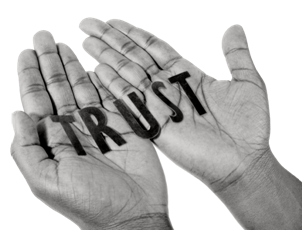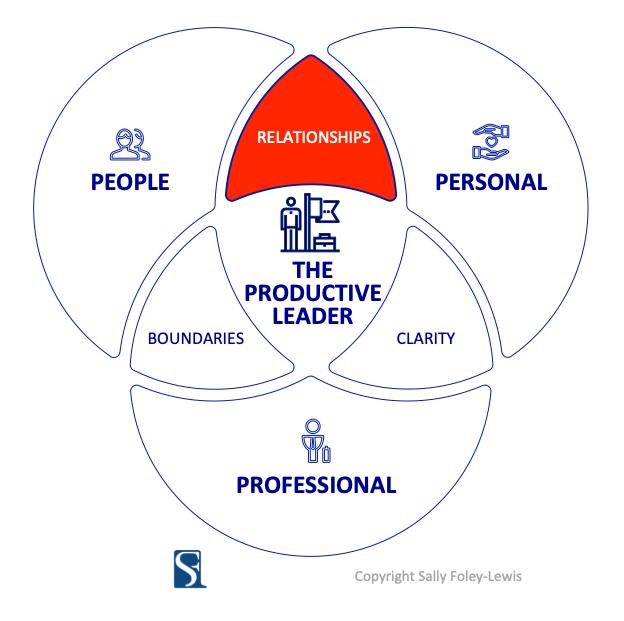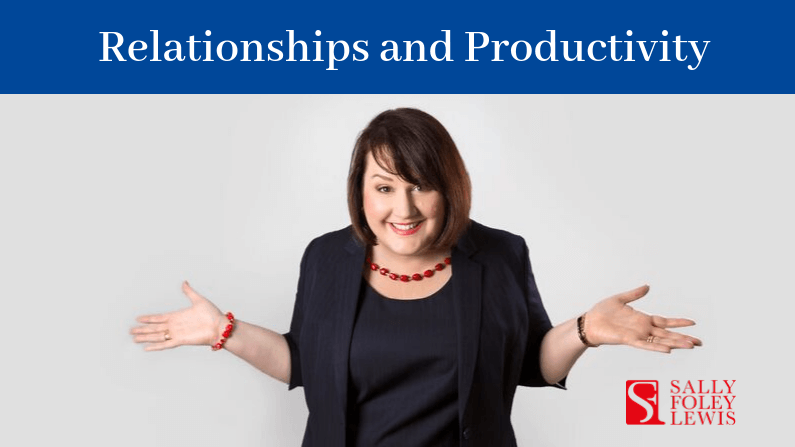Relationships need communication, period. Business owners and leaders are increasingly recognising the need to be better communicators and collaborators, as it helps them and the business reach more diverse markets faster.
Positive, open and honest relationships are critical for success. Without professional, respectful relationships, there’s no productivity. In fact, there’s no organisation. A critical element of positive relationships – and getting work done – is effective communication. Underpinning all this is trust, and when you have the trust of your people, you can achieve great results.

As cliche as it might sound, trust is in your hands. One way to build trust is to be trustworthy.
Your competence, predictability and your integrity all determine how others trust you.
A 2013 survey conducted by Hart Research Associates showed that 93% of employers considered good communication skills more important than a college graduate’s major. Furthermore, the McKinsey Global Institute found that productivity improved by 20%-25% in an organisation with employees who felt connected. That kind of increase in productivity means a potential revenue of $1.3 trillion per year. That’s 12 zeros! So, communication and relationships, connectedness and engagement, trust and openness mean increased productivity for increased revenue.
As our workforce is changing with generations, technology and globalisation, the nature of work and when and how it’s done is changing. The workforce you joined will not look, feel or sound the same, and the interaction won’t be the same, as the workforce you retire from. Relationships are key to ensuring an organisation’s employees – even when they are dispersed globally – feel and act like one cohesive, high-functioning team.
Once when I was talking with a group of middle managers, I asked them what it would be like if they didn’t have to talk to anyone at work. What if no one asked them what they were doing or how they were progressing? As you’d expect, almost all of them thought it would delightful, a paradise! “No nagging, no interruptions, it would be a dream.” I then asked them to consider how they would think and feel if they were in the same situation for six months. The mood shifted instantly. “I’d probably start to feel lonely,” was the reply that summed up the room.
Relationships lie at the intersection of personal productivity and people productivity. One impacts the other every day.

One way of understanding the importance of relationships, and how they link your personal productivity and people productivity, is to imagine you are a toy tester. Let’s take LEGO as an example. You’re the only LEGO toy tester in the world. You’re it, no one else. At first, it’s fantastic because you get all the LEGO to yourself. No one gets in your way, no one takes any pieces from you, no one pulls pieces off your creation to add it to their own. It’s a little slice of LEGO paradise.
But after a while, it’s no longer as fun. You don’t get to share. You don’t get to swap or negotiate. You don’t get to check out what others are doing to get ideas, you don’t get to compete, you don’t get to interact, you don’t get to learn, you don’t get feedback, and you don’t get to share joy with others. You start to feel lonely and disengaged. Your productivity may not suffer greatly without relationships, but without others, you will never reach your productivity potential. Likewise, others need your input, insights and knowledge for their productivity as much as you need theirs.

A great mentor of mine talks about function over friendship. While the meaning is not literal, the lesson is worthy: if you can’t have friendships – friendly relationships – at work, then the relationships must be mutually respectful of the functions each person performs. Respect for function is fundamental for building productive relationships. The productive leader builds on the respect they have for the roles others play and the outcomes each is trying to achieve.
This starts with the absolute basics: manners and appreciation. According to Globoforce, a provider of social recognition solutions, 69% of employees say they’d work harder if they were better appreciated and recognised. Please, thank you and hello are relatively simple to say, greatly appreciated, but they have disappeared from some workplaces.
The productive leader thinks about how they communicate their expectations to others. With Gallup reporting six out of ten people know exactly what’s expected of them, which means there are four out of ten who are lost or unsure. Can your organisation, team or business afford 40% of the workforce to be unclear about what they’re meant to be doing?
Clear expectations are about being explicit. You cannot assume others know or understand what you expect of them. Be as open and unambiguous as possible when stating the standards and outcomes expected. Furthermore, don’t assume employees know they can come to you with questions. They may leave your office with the task you’ve set them, thinking you’ve given them all the relevant information. But when they get started on the task, they find they have many questions. The employee is unsure whether they should speak up and ask. They don’t want to look stupid. They may take the risk of trying to work it out themselves and make serious errors. You need to be explicit and state to the employee, “You can come back to me with questions and I will come to you if more information becomes available.”
Another productivity killer that hinges on relationships is the inability to follow up. So many managers and leaders admit that they don’t follow up as much as they should. They want better engagement, better results and a more productive workforce, but they skip this key step that helps boost results. Nothing says you don’t matter like a boss who never follows up! Why do the work if no one cares or checks?
Effective communication is the foundation of relationships. Listening is a major part of communication, yet it is often overlooked. The ability to listen is so important when it comes to learning, engaging and contributing to productivity. People want to know they’ve been heard. As a productive leader, the more you listen, the more you learn about the people in your team, the way they think, the work they’re doing and the ideas they can contribute.
In today’s organisation, the networks you have are key to surviving a crisis. The stronger your relationships across your organisation, the better you can work through a challenge together.
When you have quality relationships:
- You can give and receive support from peers across departments and across an industry.
- You can come together faster as a team to strategise and problem solve.
- You don’t lose time, money or reputation in the market trying to gain rapport with other departments and employees before you can start fixing problems.
Showing an interest in what others are doing helps build a culture of reciprocity. If you show an interest in and help others, they are more likely to be interested in and help you. If you want to learn more about reciprocity in relationships, I highly recommend Robert Cialdini’s classic, Influence: The Psychology of Persuasion.
The productive leader works to build and maintain quality relationships by:
- Listening and seeking to understand instead of assuming.
- Asking thoughtful, explorative questions that inspire thinking.
- Encouraging problem solving and decision making with the right balance of support.
- Creating rapport by being interested in others rather than expecting others to be automatically interested in them.
- Meeting people where they’re without judgement.
- Providing the right amount of challenge to develop and motivate people
- Building trust by being authentic.
One of the most enduring messages I’ve heard was during a leadership program in 2003: “You cannot hate the person whose story you know.” The message derived from this quote is: when you take the time to learn about someone, you are the one who benefits. You get to learn what makes the person tick and why they do what they do. In turn, this helps you engage with them at a far more productive level.
Whose story do you need to know?




